You’ve just finished a grueling workout, and as you’re catching your breath and heading to the locker room, you’re already thinking about what your body needs from your post-workout meal. Do you reach for one of the best protein shakes or take the time to prepare a high-protein meal? Maybe even both?
In today’s health-conscious world, protein drinks have evolved from dietary supplements to dietary staples for athletes, fitness enthusiasts, and casual gymgoers looking to gain muscle by adding extra protein to their diets. They’ve become a ubiquitous addition to the post-workout meal, and it’s common to use them in place of whole-food protein sources. If you’re starting to question yourself as you mix up your third protein shake for dinner, we’ve got you covered with the science on the optimal figure for how many protein shakes a day are good for you.
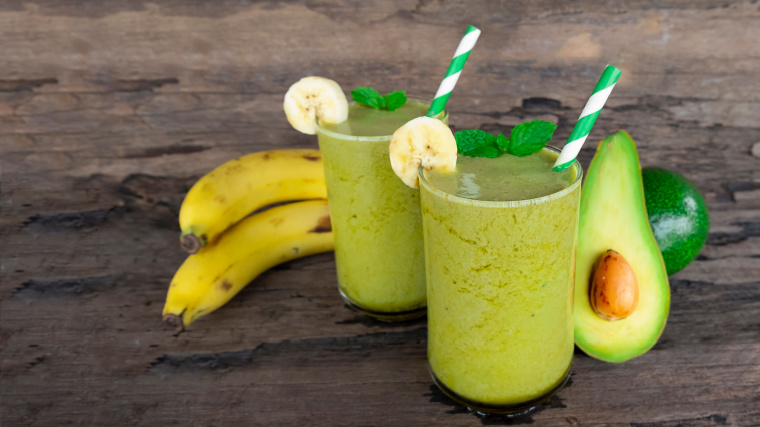
Medical Disclaimer: The content on BarBend is meant to be informative in nature, but it should not be taken as medical advice. When starting a new training regimen and/or diet, it is always a good idea to consult with a trusted medical professional. We are not a medical resource. The opinions and articles on this site are not intended for use as diagnosis, prevention, and/or treatment of health problems. They are not substitutes for consulting a qualified medical professional.
Why Is Protein Important in an Athlete’s Diet?
Protein is essential for building and maintaining muscle mass. It supports recovery, strength gains, and potential body recomposition by providing amino acids, which are the building blocks of muscle tissue. (1)(2)
Active people who partake in physical activity like HIIT workouts, resistance training, or sports have higher protein requirements than the average individual because they expend more energy, carry more muscle mass, and regularly stimulate muscle protein synthesis (MPS) by training hard. (1)(2)
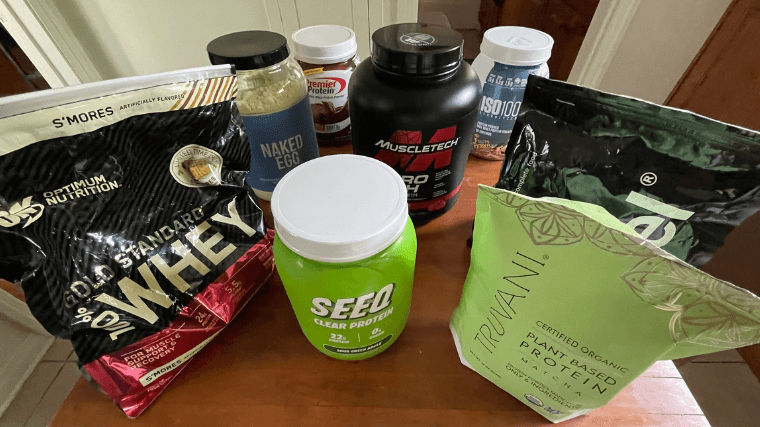
Post-workout protein consumption boosts MPS even more, and milk-based proteins can also speed up glycogen replenishment. Most protein powders are formulated to provide enough of the amino acid leucine to maximally simulate MPS, along with adequate amounts essential amino acids to support muscle recovery and growth. (1)(2)
Protein plays a major role in staying active later in life, too. As people age, they may become less sensitive to MPS stimuli and need even more protein to maintain or build muscle mass. As an added bonus, protein can also help maintain bone mineral density, which tends to decline in older adults. (3)
How Much Protein Do Athletes Need Per Day?
For optimal performance and recovery, most athletes should aim for 1.4 to 2 grams of protein per kilogram of body weight per day (g/kg/day). Athletes with very high energy demands or those in a calorie deficit should aim for the higher end of the recommended intake range to support their fitness goals. (1)(2)

Studies have shown that a protein intake of up to 4.4 grams per kilogram of bodyweight per day is safe for healthy people, so exceeding 2 grams per kilogram of body weight per day shouldn’t pose a health risk for healthy individuals. (1)(2) It might not be ideal to eat or drink protein shakes with that much protein, though, if it prevents you from meeting your carbohydrate and fat requirements because you’re too full or exceeding your calorie needs. Protein, carbohydrates, and fats are three macronutrients that your body needs to function properly. (4)
Although there’s no limit to how much protein the body can digest and absorb at once, 20 to 40 grams will maximize MPS for most people. So, there’s little reason to eat more than that in one sitting. Since MPS rates are elevated for up to four hours after a meal, it’s ideal to ingest 20 to 40 grams of protein every three to four hours. (1)(2)
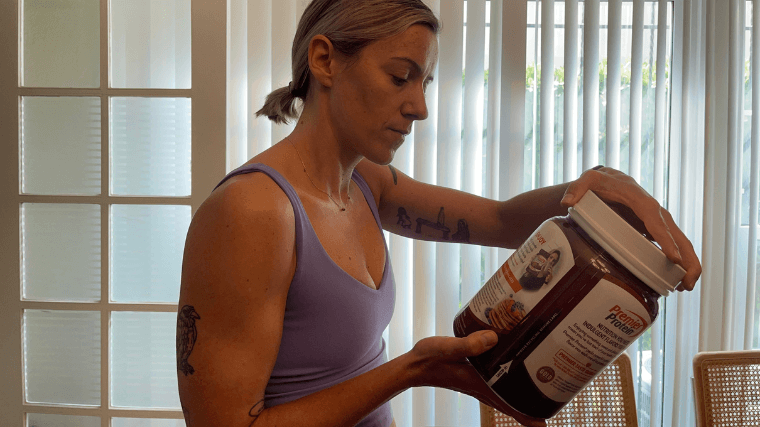
There’s some evidence that protein ingestion during resistance exercise can help to maintain strength for the next training bout, but it doesn’t prevent soreness. It may also lead to slight improvements in endurance performance. Overall, the benefits of protein supplementation during workouts are modest at best, so it’s wise to focus on your intake and timing before and after training. (1)(5)
How Many Protein Shakes Should I Have In A Day?
Sure, protein shakes are useful, but they’re still intended to be supplements, right? Is there such a thing as too many protein shakes? Technically, yes, though it might not be for the reasons you’d expect. If protein shakes are a good option for you, on the other hand, there are still some pragmatic guidelines to follow when deciding how many you’re going to drink per day.
You Might Not Need Any Protein Shakes
If you’re already meeting your protein needs with whole food sources and a healthy diet, there’s no additional benefit to adding a protein shake. (Plus, your wallet would take a hit since shakes are more expensive than most whole-food protein sources.) (1)
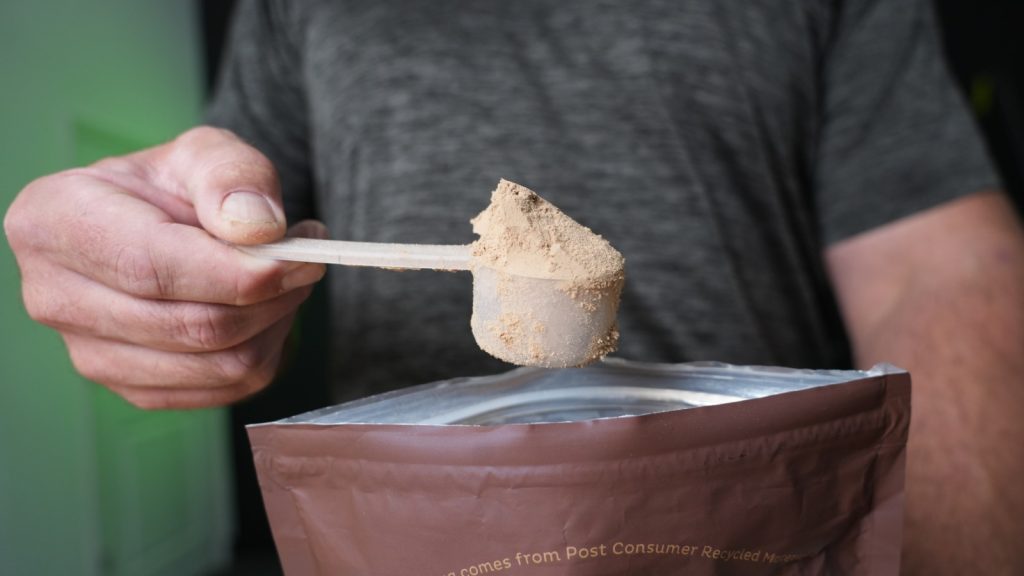
Whole-food protein sources also provide a wider variety of non-protein nutrients in a specific food matrix, which refers to the way a food’s components are structured and interact. In other words, the components of a whole-food protein source — its food matrix — will interact with one another and the human body in a way that protein shakes don’t. (6)
In fact, one study showed that whole eggs stimulated MPS more than protein-matched egg white powder, likely due to the higher calorie content and food matrix of the eggs. (6) Other studies have reported that protein-matched doses of whole milk, skim milk, casein and whey protein, and beef all differ in their potential to stimulate post-exercise MPS. (1)(2)(6) Protein shakes aren’t superior to protein-rich food sources because they’re absorbed faster.
One or Two Protein Shakes a Day
Protein shakes are dietary supplements intended to help people meet their protein needs with a portable and more convenient way to reach one’s daily protein requirement. Although they aren’t nutritionally superior to their whole-food equivalents, they provide a number of other benefits and can be used along with a balanced diet.
Adding Protein When Whole Foods Are Too Filling
Protein shakes can be added to your diet as an easy way to boost protein intake without any major overhauls to your routine or the amount of food you need to eat.
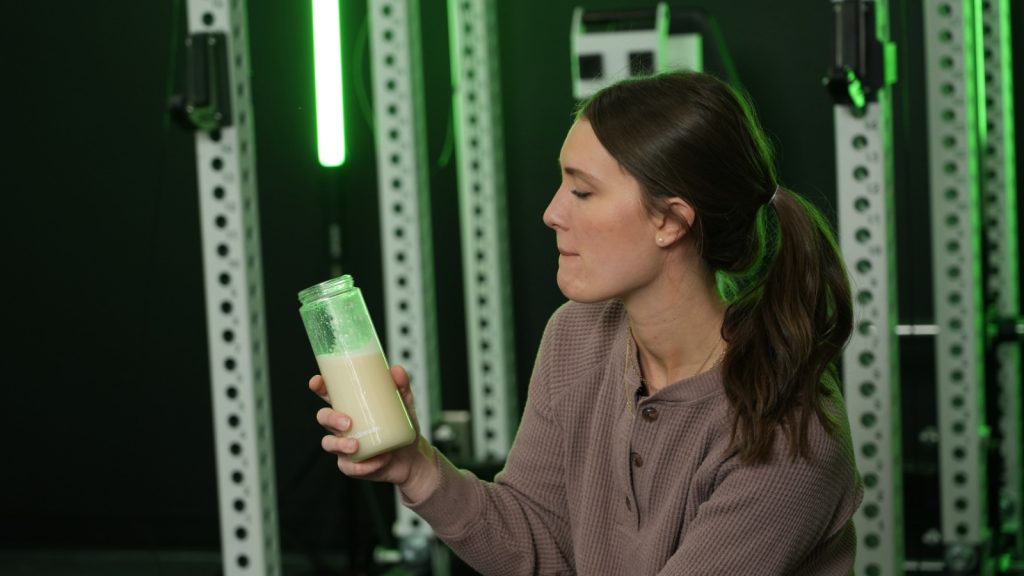
If you’re having a hard time getting enough protein from whole foods because it’s simply a chore to eat so much, whether you’re following a high-protein diet or not, a high-quality protein shake can come in handy. Even if you do need to add a protein shake on its own, liquids tend to be less satiating than solid foods, so it won’t leave you feeling overly full. (7) However, some people with sensitivities to dairy may experience side effects, such as an upset stomach or bloating.
Some vegan and vegetarian diets may be lower in protein than omnivorous diets, so plant-based protein shakes, like those made from pea protein or soy protein — which you can find in some of the best vegan protein powders — can be options for athletes who don’t eat animal protein. (8)
Meeting Protein Timing Recommendations When Time Is Limited
Meal replacement and supplemental shakes are also quick and easy to prepare, which can help you hit your protein timing goals. Since they’re powdered, they have a long shelf-life, and unlike whole-food protein sources, the powder can last for days in a gym bag (though this isn’t the case once it’s been hydrated.)
Whether you’re traveling or the demands of your workday prevent you from having sit-down meals as part of your daily diet, a protein shake requires only two ingredients (water and protein powder) and takes just seconds to consume.
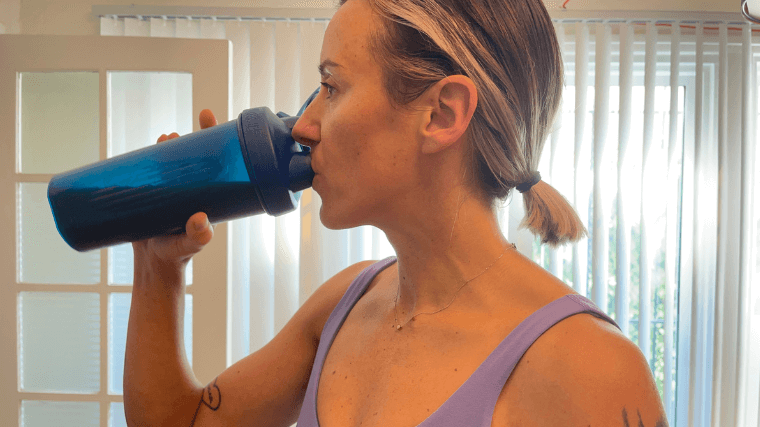
The myth of the one-hour post-workout anabolic window was busted a while ago, so it’s clear that you don’t need to gulp a protein shake as soon as you finish your last set. But it’s still ideal to ingest protein sooner rather than later. (1)(2)
How Many Protein Shakes Is Too Many?
How many protein shakes should you have in a day? As many as you need to meet your protein requirements when whole foods aren’t a feasible option.
Could you rely solely on protein shakes to meet your protein needs? Assuming the rest of your diet is nutritionally adequate, there’s no evidence that having multiple protein shakes per day would cause any physical harm. (1)
Do you really want to drink three or more protein shakes in a day, though? Considering that most shakes provide about 25 grams of protein per serving, most people are looking at drinking at least four a day to meet their protein needs. They aren’t very satisfying, and while the flavors have improved a great deal over the years, it’s possible that you’ll get tired of even the tastiest, creamiest shake after the tenth one in a week.
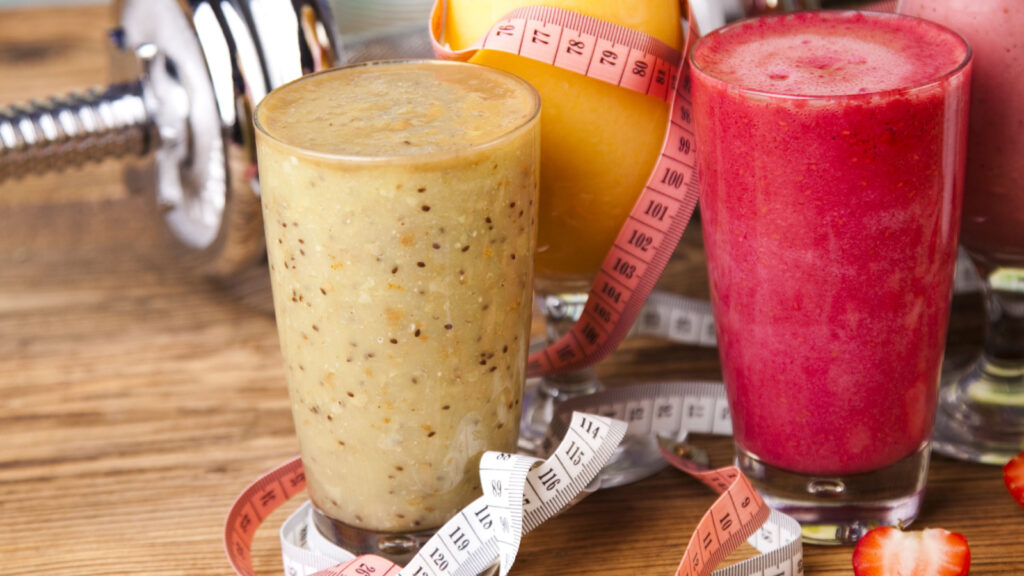
Whether you’re looking to build lean muscle or support your training for sport, check out our protein intake calculator to help you figure out exactly how much protein you need.
It’s also important to remember that you won’t reap all the benefits of a protein shake if the rest of your diet is too low in calories, carbohydrates, fiber, and other nutrients. (1)(2)(6) If your diet is mostly protein shakes and little else, that’s too many protein shakes.
Drink Up
When you’re wondering how many protein shakes a day is too many, rest assured — as long as you’re generally healthy and meeting all your other nutritional needs, you can gulp to your heart’s content.
If protein shakes help you reach your daily protein intake requirements, more power to you and your shaker bottle. Just make sure you’re getting enough micronutrients, carbs, and fats to power your entire body. After that, the protein powder (and power) is yours.
FAQs: How Many Protein Shakes in a Day
How much protein do you need per day to build muscle?
To best support muscle growth when you’re in the throes of a strength training routine, research has shown that consuming 1.4 to 2 grams of protein per kilogram of body weight per day is ideal for the average person. For bodybuilders and high-level athletes, up to 4.4 grams of protein per kilogram of body weight has been shown to be beneficial. (1)(2)
How much protein should you have a day while losing weight?
When weight loss is the goal, ideally you’ll want to hold onto your muscle mass without overloading on fats, carbs, and sugars. Check out our list of the best protein powders for weight loss while keeping in mind that 1.6 to 2.2 grams of protein per kilogram of body weight is ideal for the average person and 2.2 to 2.4 grams of protein per kilogram of body weight is best for athletes and those who spend more time exercising. (9)
How much protein is in one protein shake?
Depending on the type and brand of protein powder you’re using in your protein shake, the amount of protein will alter slightly. Typically, protein powders have about 20 to 25 grams of protein per serving, with options ranging from as low as 15 grams per serving up to 40 grams per serving. If you’d like to double scoop and double up your protein intake, be sure to check for any additional ingredients that you wouldn’t want to consume in a double portion.
References
- Jäger, R., Kerksick, C. M., Campbell, B. I., & et al. (2017). International Society of Sports Nutrition Position Stand: protein and exercise. Journal of the International Society of Sports Nutrition, 14(1), 20.
- Cintineo, H. P., Arent, M. A., Antonio, J., & Arent, S. M. (2018). Effects of Protein Supplementation on Performance and Recovery in Resistance and Endurance Training. Frontiers in nutrition, 5, 83.
- Groenendijk, I., Grootswagers, P., Santoro, A., Franceschi, C., Bazzocchi, A., Meunier, N., Caille, A., Malpuech-Brugere, C., Bialecka-Debek, A., Pietruszka, B., Fairweather-Tait, S., Jennings, A., & de Groot, L. C. P. G. M. (2023). Protein intake and bone mineral density: Cross-sectional relationship and longitudinal effects in older adults. Journal of cachexia, sarcopenia and muscle, 14(1), 116–125.
- Muth, A. K., & Park, S. Q. (2021). The impact of dietary macronutrient intake on cognitive function and the brain. Clinical nutrition (Edinburgh, Scotland), 40(6), 3999–4010. https://doi.org/10.1016/j.clnu.2021.04.043
- Pearson, A. G., Hind, K., & Macnaughton, L. S. (2023). The impact of dietary protein supplementation on recovery from resistance exercise-induced muscle damage: A systematic review with meta-analysis. European Journal of Clinical Nutrition, 77, 767–783.
- Burd, N. A., Beals, J. W., Martinez, I. G., Salvador, A. F., & Skinner, S. K. (2019). Food-First Approach to Enhance the Regulation of Post-exercise Skeletal Muscle Protein Synthesis and Remodeling. Sports medicine (Auckland, N.Z.), 49(Suppl 1), 59–68.
- Rogers, P. J., & Shahrokni, R. (2018). A Comparison of the Satiety Effects of a Fruit Smoothie, Its Fresh Fruit Equivalent and Other Drinks. Nutrients, 10(4), 431.
- Sobiecki, J. G., Appleby, P. N., Bradbury, K. E., & Key, T. J. (2016). High compliance with dietary recommendations in a cohort of meat eaters, fish eaters, vegetarians, and vegans: results from the European Prospective Investigation into Cancer and Nutrition-Oxford study. Nutrition research (New York, N.Y.), 36(5), 464–477.
- Dieter, B. (n.d.). Protein metabolism: How to optimize protein intake for muscle gain and weight loss [Video]. https://blog.nasm.org/nutrition/how-much-protein-should-you-eat-per-day-for-weight-loss?utm_source=blog&utm_medium=referral&utm_campaign=organic&utm_content=safeandhealthyweightloss#:~:text=If%20you%20want%20to%20lose,if%20aiming%20for%20weight%20loss.